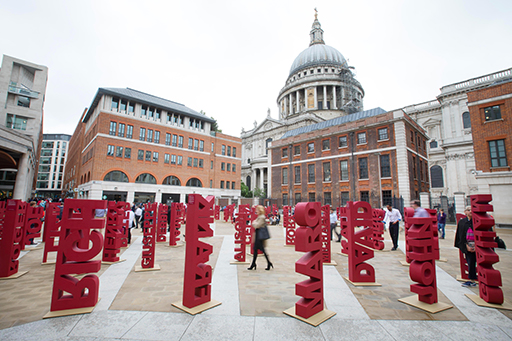Blood cancer awareness campaign launches
In News
Follow this topic
Bookmark
Record learning outcomes
Janssen Pharmaceuticals joined forces with nine blood cancer patient support groups to launch the Make Blood Cancer Visible campaign. The campaign runs throughout September, blood cancer awareness month, and aims to increase awareness of the disease.
As part of the campaign, an installation featuring 104 names of sufferers has been placed in London's Paternoster Square. These sculptures represent the 104 people diagnosed with blood cancer each day.

Dr Rozlyn Bekker, business unit director, oncology and haematology at Janssen UK said: €Janssen is dedicated to supporting and improving the lives of patients diagnosed with blood cancer. Helping to raise awareness of these types of cancers and working with healthcare professionals and patient support groups to bring about a better understanding of haematological malignancies is an important part of this. We hope that this campaign will help to give a voice to patients living with blood cancer.€
Results of a public and patient survey have also been announced to coincide with the launch of the campaign. The public survey, which was carried out by YouGov, reveals that only one in 10 people are aware that there are more than 100 types of blood cancer €“ and only 12 per cent knew that blood cancer was one of the top five most commonly diagnosed types of cancer.
The patient survey, which was carried out by Leukaemia Care, highlights that 80 per cent of sufferers did not associate their symptoms with blood cancer prior to receiving their diagnosis. 38 per cent said they had not heard of their type of blood cancer before being diagnosed.
Diana Jupp, director of patient experience at charity Bloodwise, which is taking part in the campaign, said: €Despite 230,000 people being affected by blood cancer across the UK, it is still a much misunderstood and little known disease area. We know that low awareness can lead to late diagnosis and can make it hard for people to find the information and support they need, leading to a greater sense of isolation.€
